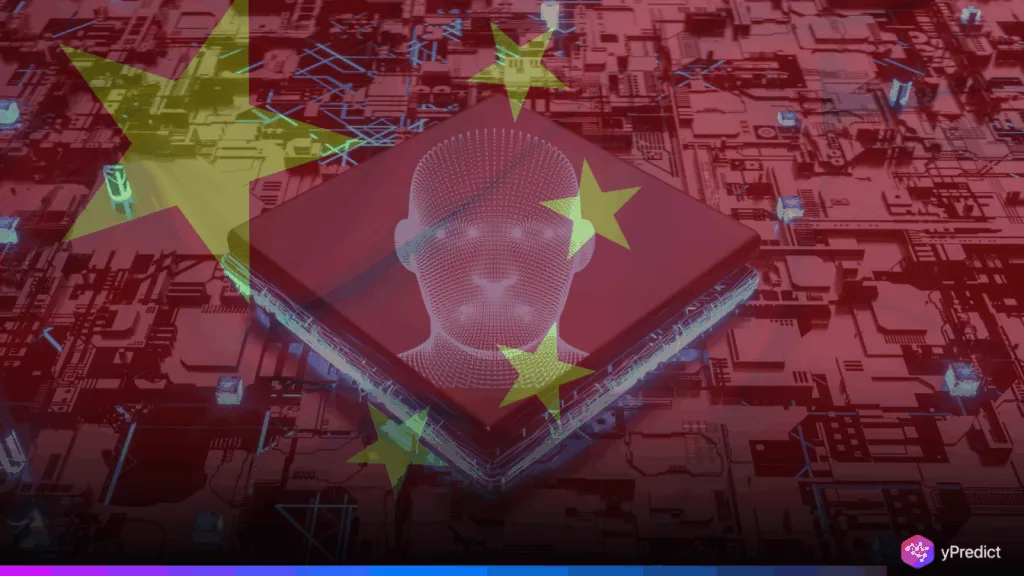
China is making a huge push to lessen its dependence on the U.S. chipmaker, Nvidia, announcing a new goal to obtain 70% self-sufficiency in AI chips by 2027. Currently, Nvidia has about an 80% market share in China’s AI chip market as of early 2024 and China’s move represents a large pivot in the transition towards technology sovereignty, national security, and conflicts with Washington, making their domestic champions (like Huawei and SMIC) and cities like Guiyang, Shanghai, and Beijing to secure critical AI infrastructure and change how the global semiconductor market exists today. Because of U.S. restrictions on the exportation of advanced processors, Nvidia was unable to fully realize its presence.
Huawei Emerges as Key Challenger
A central pillar of China’s self-sufficiency strategy lies in the capabilities of Huawei, which has shown significant progress through its Ascend series of AI processors. The Ascend 910B, manufactured by Semiconductor Manufacturing International Corp. (SMIC), is estimated to deliver around 85% of the computing power of Nvidia’s H20, a scaled-down processor specifically approved for export to China. While the H2O’s 15% performance cut reflects Washington’s tightened restrictions, it has also created market openings for Huawei to fill. The anticipated Ascend 920 is already generating industry buzz, promising to reduce the technological gap and improve efficiency and performance scalability.
Rumors of the 910C model, reportedly capable of doubling the 910B’s performance, suggest Huawei is quickly iterating to address lingering bottlenecks such as interconnect bandwidth. Although SMIC remains limited to producing chips at older 7nm process nodes, Chinese engineers are increasingly employing advanced designs and packaging strategies to offset disadvantages. Huawei’s momentum highlights not only its resilience but also its importance as a cornerstone of Beijing’s broader semiconductor ambitions. With each product cycle, Huawei edges closer to providing Chinese data centers with viable alternatives to Nvidia, rebalancing a sector historically tilted towards U.S. suppliers.
Localized Ecosystems and City Mandates
Municipal policies have a lasting effect on the landscape by requiring domestic technology adoption. Guiyang, in Guizhou, and already an established data center hub with Apple, has mandated that 90% of chips used in new infrastructure be sourced domestically. Given the city’s abundant hydropower for energy-intensive computing, it is a good example of how local leaders blend locational advantages with policies. Not only do these directives improve supply chain resilience, but they also combat reliance on foreign players for critical AI infrastructure.
Shanghai commits to attaining 70% AI chip self-reliance in data centers by 2027, while Beijing aims for 100%. These declarations point to a more encompassing national strategy where municipalities are anchoring aspects of national resilience using policy platforms. Added to chip ambitions are AI service providers like DeepSeek, Alibaba, Baidu, and ByteDance, which are finding ways to insightfully reposition the AI model frontier. DeepSeek’s large language models are cheaper, which upended the pricing universe of its competitors, forcing them to re-evaluate pricing aggressively downwards. Domestic chip designers like Cambricon and Baidu’s Kunlun also continue to win attention as viable alternatives to established incumbents and drive a more fragmented market share, historically dominated by players like Nvidia.
Conclusion
China’s goal of achieving 70% self-sufficiency in producing AI chips signifies a key moment in the global technology race. As local substitutes begin to gain market share, Nvidia’s revenues and market share will likely both fall. Beijing has conveyed that foreign technology is no longer acceptable due to the deepening geopolitical divide. Municipal policies combined with homegrown innovation and a resilient industrial base are providing a layer of insulation for China against U.S. controls while also building its long-term competitiveness. Although China faces challenges in advanced manufacturing nodes and external partnerships, it is clear that AI chips will be a key front of the larger technology contest between the U.S. and China.






